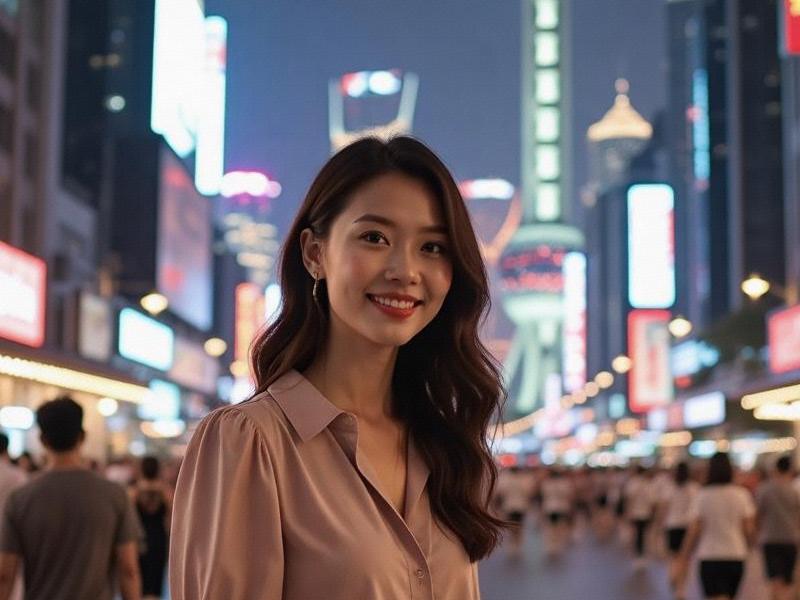This investigative piece explores how Shanghai's women are breaking traditional molds while creating a new paradigm of Chinese femininity that blends global sophistication with local cultural roots.

The neon glow of Nanjing Road reflects off rain-slicked pavements as Shanghai's women navigate another bustling evening. In this city of 26 million, where East meets West with particular intensity, a quiet revolution in gender norms is unfolding. From the financial towers of Lujiazui to the art studios of M50, Shanghai's women are crafting a new playbook for modern Chinese femininity - one that embraces both qipao traditions and quantum computing with equal grace.
The Education Advantage
Shanghai's female workforce now boasts the highest percentage of postgraduate degrees among Chinese cities (43% versus national average of 28%). At prestigious institutions like Shanghai Jiao Tong University, women dominate STEM programs that were once male preserves. "Our female robotics students outperform male peers in systems thinking," notes Dean Wang Li of the School of Mechanical Engineering. This academic prowess translates to boardroom success - women now lead 38% of Shanghai-based tech startups, compared to just 19% in Beijing.
爱上海419论坛
Fashion as Cultural Statement
The Shanghai woman's wardrobe tells a story of cultural synthesis. Luxury malls along Huaihai Road showcase local designers like Caroline Hu, whose "neo-qipao" designs fuse traditional embroidery with sustainable fabrics. Meanwhile, the rise of "Guochao" (national trend) has seen young Shanghainese women reinvent cheongsam as streetwear. "We're not rejecting Western fashion," explains style influencer LuluInShanghai, "but curating it through a Shanghainese lens." This sartorial confidence has made Shanghai the testing ground for 72% of new beauty brands entering China.
上海龙凤论坛爱宝贝419
The Marriage Equation
Shanghai's singles scene reveals shifting priorities. Dating apps report local women are 53% more likely to list "personal growth opportunities" over "marriage timeline" in profiles. Matchmaker Chen Xiaoli notes, "The 'leftover woman' stigma is fading - my clients now proudly list PhDs and startup exits as assets." This change reflects in marriage ages - Shanghai women now marry at 31.2 on average, latest in mainland China. Yet traditional matchmaking persists innovatively, with AI-enhanced marriage markets in People's Square analyzing compatibility via big data.
上海龙凤419足疗按摩
Cultural Stewardship & Innovation
Beyond economics, Shanghai's women are redefining cultural preservation. Architect Zhang Jing's adaptive reuse of Shikumen homes has become a global case study in heritage conservation. Meanwhile, all-female Yue opera troupes are packing houses with modernized classics. "We're keeping traditions alive by making them relevant," says opera director Lin Xia. Even in cuisine, female chefs like Fu Yingying are reinventing Shanghainese dishes for health-conscious millennials without losing benbang (local flavor) essence.
As dawn breaks over the Huangpu, watch Shanghai's women commence their days - the grandmothers performing tai chi with sword-like precision, the young mothers balancing babies and briefcases, the university students debating in coffee shops that once excluded women entirely. They embody what makes this city extraordinary: the ability to honor jade-and-silk histories while coding tomorrow's possibilities. In their Louboutins and Li-Ning sneakers, they're walking China into its future - one elegant, determined step at a time.